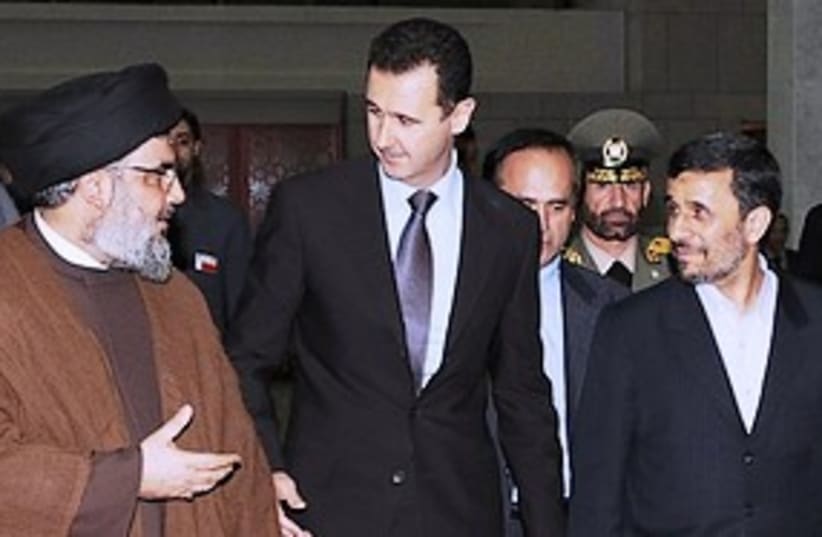RELATED:Barak heads to Russia in bid to halt Iran, Syria arms dealArab World: Syria’s comeback gameSyria reportedly signs pact with HizbullahWhile this may have been the case in the past, based on conversations with top IDF officers and Defense Ministry officials this week, the defense establishment actually appears to support Obama’s decision to appoint a new ambassador to Syria.Defense Minister Ehud Barak, IDF Chief of General Staff Lt.- Gen. Gabi Ashkenazi, OC Military Intelligence Maj.-Gen. Amos Yadlin and OC Planning Branch Maj.-Gen. Amir Eshel have all voiced support in meetings with the political echelon for Israel to negotiate peace with Syria.The thinking within the defense establishment is that Israel, alone, does not have enough leverage to get Syria to sit down at the negotiating table, and for that it needs America’s help.While the price for peace is largely believed to include a full withdrawal from the Golan Heights, Ashkenazi, for example, has said privately that due to Syria’s deteriorating economy, billions of dollars in aid from the United States could be instrumental in pushing President Bashar Assad toward the West.The IDF’s objective in supporting peace with Syria has changed over the past 20 to 30 years and is not just about preventing war with Israel’s neighbor to the North but is more about breaking the radical axis that connects Syria with Iran and Hizbullah.“Israel cannot on its own put Assad on the horns of a dilemma and needs America’s help to do that,” one senior Israeli defense official said this week.“At the moment, Assad sees that he is not paying a price for not making peace. Renewed ties between the US and Syria can put him in that dilemma.”
Defense officials back US bid to send envoy to Syria
Top IDF officers say an American ambassador, US aid money may help convince Syria to negotiate, break ties with Iran and Hizbullah.

RELATED:Barak heads to Russia in bid to halt Iran, Syria arms dealArab World: Syria’s comeback gameSyria reportedly signs pact with HizbullahWhile this may have been the case in the past, based on conversations with top IDF officers and Defense Ministry officials this week, the defense establishment actually appears to support Obama’s decision to appoint a new ambassador to Syria.Defense Minister Ehud Barak, IDF Chief of General Staff Lt.- Gen. Gabi Ashkenazi, OC Military Intelligence Maj.-Gen. Amos Yadlin and OC Planning Branch Maj.-Gen. Amir Eshel have all voiced support in meetings with the political echelon for Israel to negotiate peace with Syria.The thinking within the defense establishment is that Israel, alone, does not have enough leverage to get Syria to sit down at the negotiating table, and for that it needs America’s help.While the price for peace is largely believed to include a full withdrawal from the Golan Heights, Ashkenazi, for example, has said privately that due to Syria’s deteriorating economy, billions of dollars in aid from the United States could be instrumental in pushing President Bashar Assad toward the West.The IDF’s objective in supporting peace with Syria has changed over the past 20 to 30 years and is not just about preventing war with Israel’s neighbor to the North but is more about breaking the radical axis that connects Syria with Iran and Hizbullah.“Israel cannot on its own put Assad on the horns of a dilemma and needs America’s help to do that,” one senior Israeli defense official said this week.“At the moment, Assad sees that he is not paying a price for not making peace. Renewed ties between the US and Syria can put him in that dilemma.”